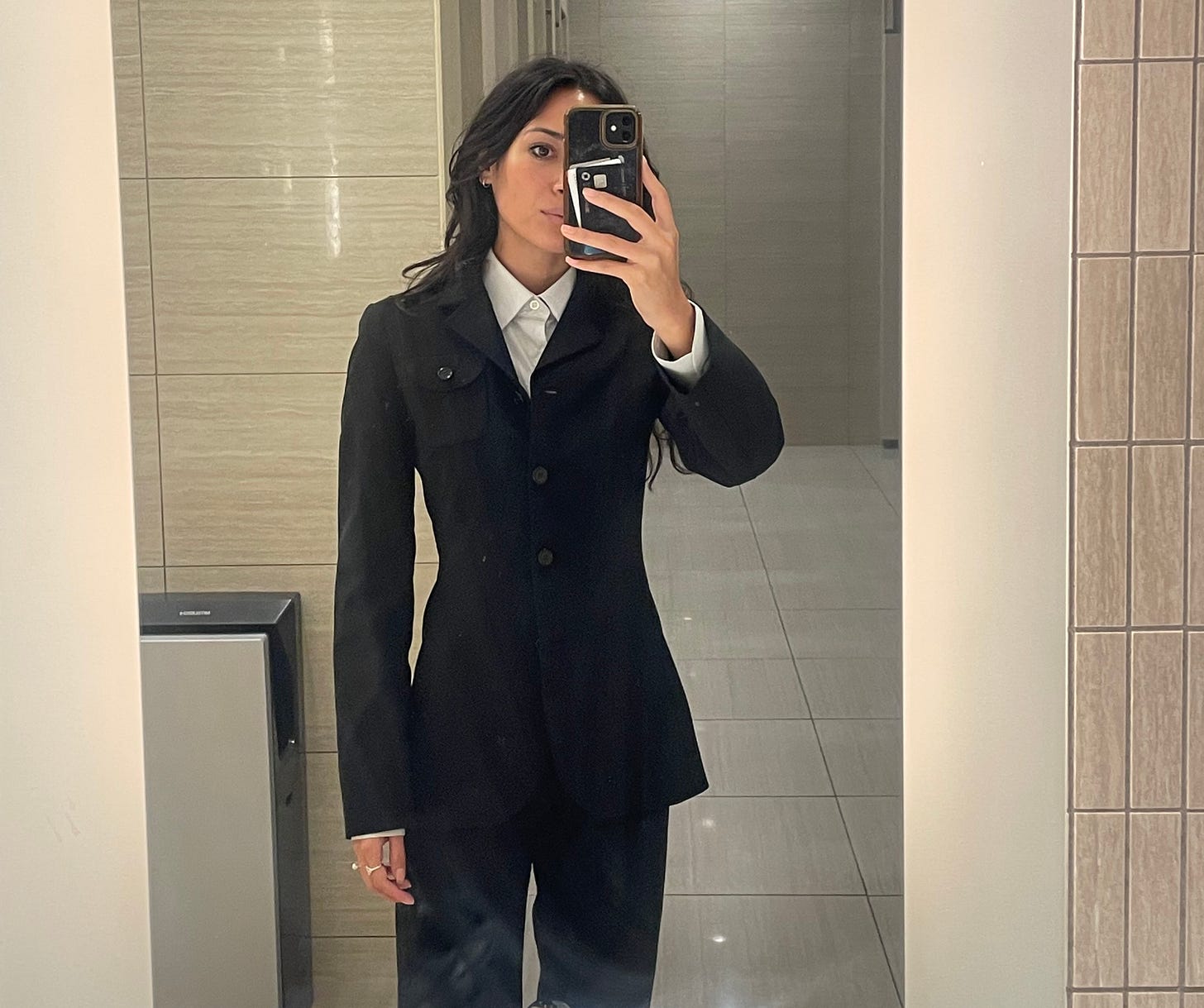Are you confident in your health choices?
"who's gonna stop us from waltzing back into rekindled flames" - taylor swift on choice architecture
I'm reporting to you live from the train to Marseille.
If the vibecession taught us anything (is teaching us? seeking strippernomics input here), it’s that human behavior complicates things. It’s why your Econ 101 course seldom reflects the real world. It’s why some rally against expanding Medicaid; they aren’t making rational choices. Who foots the bill when uninsured people seek care in an ER? Taxpayers. ER bills are heftier than regular primary care visits.
Humans act according to their experiences/personal values and within their limits. Context, context, context. In policy-making, governments tend to go one of two directions. They may coax you into making the right choice with a gentle nudge. Or they may force you into what they think is the right choice “for your own good” with a firm shove. Health systems, insurers, and maybe even our parents all take one or a mix of these approaches. Mostly, people agree to disagree on the correct approach. The world keeps turning.
I’m raising this today for four reasons:
I think choice architecture is interesting!
I hope covering health policy foundations early on in the newsletter will ensure we’re starting with the same baseline. We’re putting that Columbia MPH to good use!
I don’t think I’m on board with whatever the heck the UK is doing…please don’t tell anyone in the UK government I said this
Ya’ll are going off the deep end with the Twitter discourse around full-body MRIs. What’s wrong with some of you???
PATERNALISM
What’s the deal? It’s a heavy hand or protective shield, depending on who you ask. But you can assume Americans hate this. Paternalism argues that strong interventions are necessary to protect individuals from harm, specifically where “irrational” choices or lack of information may yield adverse outcomes. Most people agree that governments should protect us from each other, but how far is our government allowed to protect us from ourselves? Critics of paternalism raise concerns about the potential infringement on individual autonomy and personal freedom. They argue that imposing restrictions or mandates may undermine an individual's ability to make choices in alignment with their own values and preferences.
In the US, the Constitution is often used to justify public health paternalism (don’t tread on me!). Not sure what I mean? Think car seatbelt + motorcycle helmet laws (also because states wanted federal funds), vice taxes (regressive!), pornstar condom laws (you gotta love LA), laws against suicide.
A contemporary and chaotic example hails from the UK. Rishi Sunak, the British Prime Minister otherwise known for wearing suits tailored to make him look taller. RiRi wants to ban people born after 2009 from ever (?!) buying cigarettes to create a smoke-free generation and tackle preventable illness/death. Even his fellow Conservative Party members are openly dissenting, citing personal freedom. New Zealand attempted a similar law, but it was scrapped late last year.
NUDGES
In contrast, nudges are based on influencing behavior through subtle prompts and indirect suggestions. Rather than mandating specific actions, nudges coax us into making the “right” choices to promote desired outcomes while preserving our freedom of choice. We can thank our soft power kings, Cass R. Sunstein and Richard H. Thaler for this school of thought. Examples include preventive care incentives, cancer screening programs, calorie information on menus, warnings on cigarette packages, opt-out donor programs, and balanced school lunches.
I spent 10 days in Tokyo for work last Autumn. I can write a thesis on everything good about Japan, but they make it really hard to be bad there. For instance, I couldn’t jay-walk, because steel barricades along the sidewalk made it impossible to consider exercising my right as a New Yorker. For my Diet Coke girlies: how do you feel about Diet Coke with fiber to help curb sugar spikes (allegedly)?
If you live on my side of Twitter, you likely came across last week’s whole-body MRI discourse. Venture-backed whole-body MRIs proclaiming the benefits of catching certain diseases early are trendy. On the surface, it's enticing. This idea echoes the health systems strengthening work I did to address gaps in cancer care. However, like many wellness trends, it's a case of hype outpacing evidence. Christina Farr covered the debate on her Substack. Twitter clocked physicians in the “naysayer” camp as paternalistic. I disagree with accusations of paternalism for citing lack of evidence and potential false positives as reasons to advise against whole-body MRIs, but my bigger concern is how these services will impact or roadblock care for patients who can’t access regular screening and access to basic health services in the first place.
Sometimes the government thinks you're an idiot and you're not. Other times you're truly making ill-informed choices. (I'd never call you an idiot, sweetie.) Effective health policy should seek to promote positive behaviors while respecting individuals' autonomy and agency. But the problem with regulating individual choices is that addressing systemic issues can have a broader impact on public health and efficiency in healthcare resource utilization (it always comes down to money + resources) than someone’s choice to eat processed meat or smoke a cheeky cigarette after a night out with friends. And I will die on that pile of ashes, dammit! Hopefully not from lung cancer, because I don’t smoke, but there’s always air pollution and hazardous chemical exposure.
Okay that was a lot. How do we feel about this? Too didactic? Too long? Not bad? I’ll be back this week with personal updates.
xxsem






I read this newsletter. It had lots of thoughts, which I respected. I think you are doing a good job of providing information and keeping people informed. Keep using your voice and your insights.